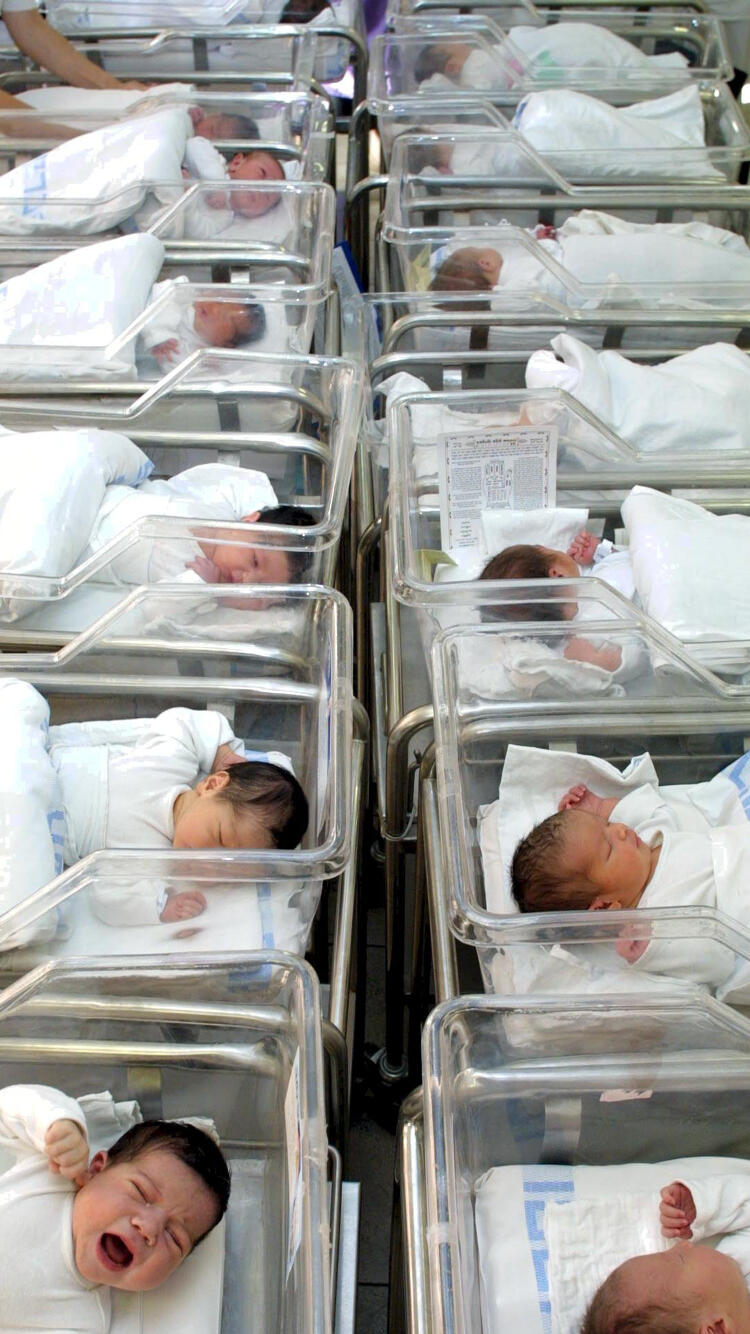Europe has justifiably been hailed as the quintessential example of quality living, with the top six countries in the world all being European, according to the latest Quality of Life Index.
Read more:
That said, their picturesque lifestyles notwithstanding, recent years have shown that young people all over Europe are in no hurry to make babies, with a direct correlation extending to apprehensions about their future.
Daniele Vignoli, a professor of demography at the University of Florence, teaching Family Demography and Longitudinal Data Analysis, has been at the forefront of a study called "Economic Uncertainty and Fertility in Europe", examining how European fertility rates are being altered by uncertainty.
He posits that fear and uncertainty, particularly from an economic standpoint, are making young people in their 20s and early 30s postpone their first child or forego the idea of reproduction altogether.
Data back him up. Back in the 1960s, Italian couples had 2.4 children on average, currently plummeting to 1.25 only. A drop of almost half. Italian women also have their first child at 31.5 years old, which is considered late even by European standards.
These statistics, according to demographics specialists, are insufficient to maintain current population levels, never mind growth. This will likely bring about a situation where a growing number of the elderly would need to be supported by a shrinking number of young, active people. Data from 2022 affirms that over half of the European population was older than 44.4 years old, and those over 65 constituted more than 20%.
Back in 2019, Vignoli examined the proliferation of negative media content, namely price hikes, politics or regional instability, and how those manifested in the couple's choice of having a child. The study surveyed 800 couples in their 20s and 30s in both Italy and Norway.
In what quickly became a consensus, participants all echoed the issues of unemployment, unattainable living goals and a general sense of anxiety relating to global events as the main impetus behind their decision to refrain from having children.
"Our results showed very clearly that fertility is affected by uncertain narratives of the future," said Prof. Vignoli.
Money problems
Another aspect that came to the fore was the Great Recession of 2008-2009 and its notable effects on European reproduction. Researchers have pointed out that while previous economic events have temporarily withheld many people from having children, this particular crisis has had a lasting effect, with couples refraining from having children even after world banks have completely recuperated.
Prof. Vignoli estimates this was the point where declining birthrates began, and even if they had a chance of eventually bouncing back, those were subsequently crushed by the COVID-19 pandemic. Markets crashed again, and European couples, who were contemplating the idea of starting a family, turned wary once more.
Dr. Anna Matysiak, a family demographer and economist with a special interest in labor market research from Warsaw, has been spearheading a 5-year project called "Labor Market Change and Fertility", which has been financed by the EU and is designed to examine how fertility rates are affected by market trends like automation and other changes regarding the labor market.
The researcher suggests that those in professions where technologies have predominantly replaced human effort, often postpone starting a family. Structural shifts like automation in job markets of countries like Germany, Italy and Sweden have reshaped job roles, eliminated some and compelled individuals to pivot to new specializations. Dr. Matysiak emphasizes these alterations could impact family stability, regardless of the economic stability in these countries.
She believes low-skilled workers are most susceptible to being replaced by technological advances in automation, thus increasing their overall misgivings about being able to support a family. Furthermore, couples in Sweden were of a higher likelihood of getting a divorce.
Conversely, an opposite effect was noted among those who work in more "flexible" occupations, such as those working remotely, a trend that has exploded since the pandemic. Dr. Matysiak says working from home grants increased flexibility for couples who might wish to have more than one child, but on the other hand, "couples are not necessarily having children earlier as a result," she said.
Vignoli believes the effect of uncertainty on birth rates will only increase in the years ahead, especially as artificial intelligence in the workplace becomes more prevalent, and both he and Matysiak think couples will need more governmental support at work and home to bolster their confidence in starting or expanding a family.
According to Matysiak, targeted policies are much needed to help people stay in the labor market. These include better access to counseling and training. She further argues for new rules to protect workers working long hours and preventing spillovers from paid work into family life.
"Demography defines our past, but it also sets our future," said Vignoli.




